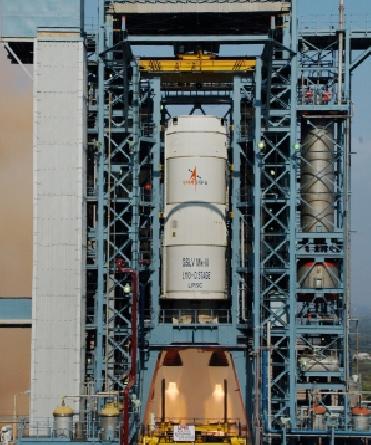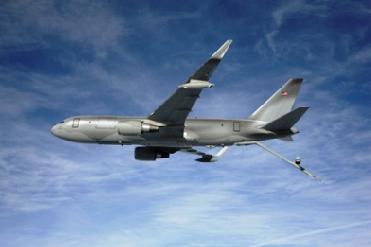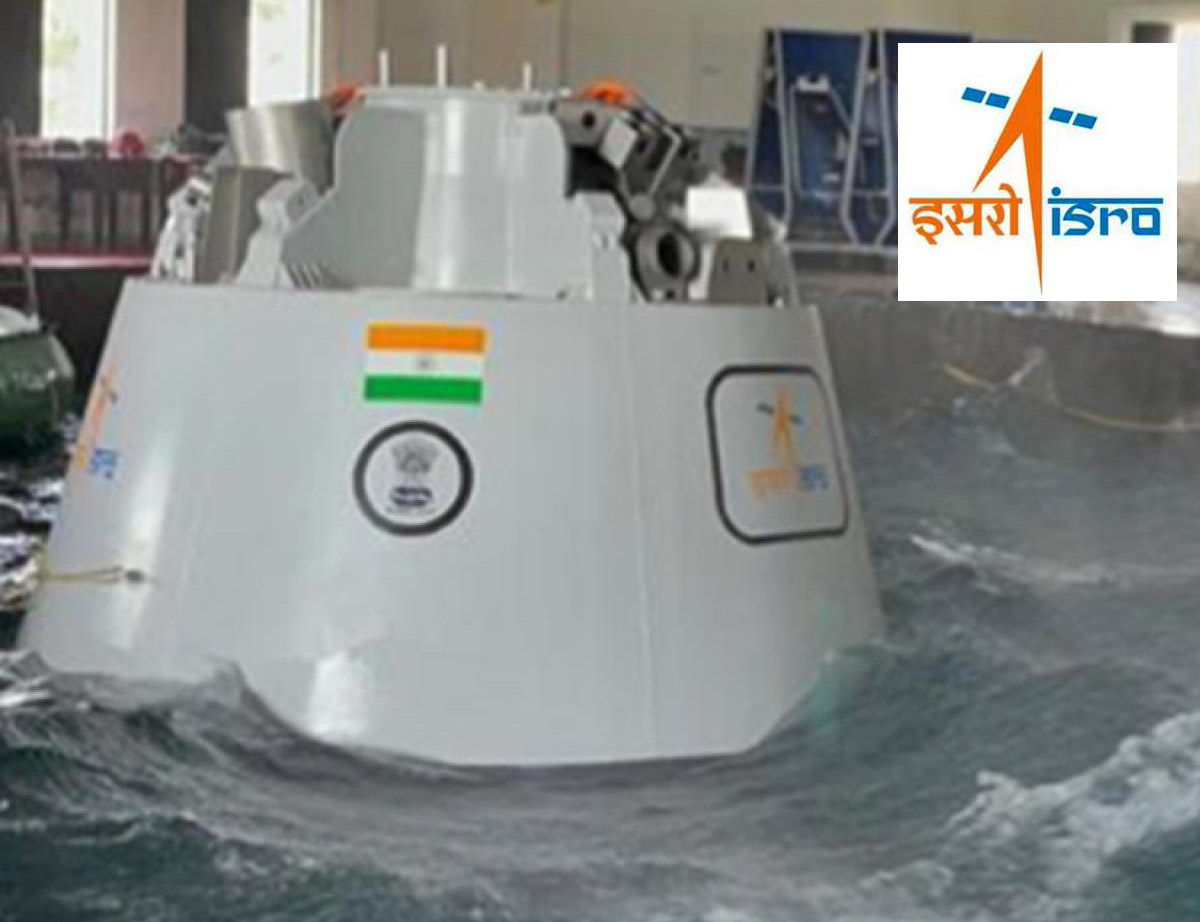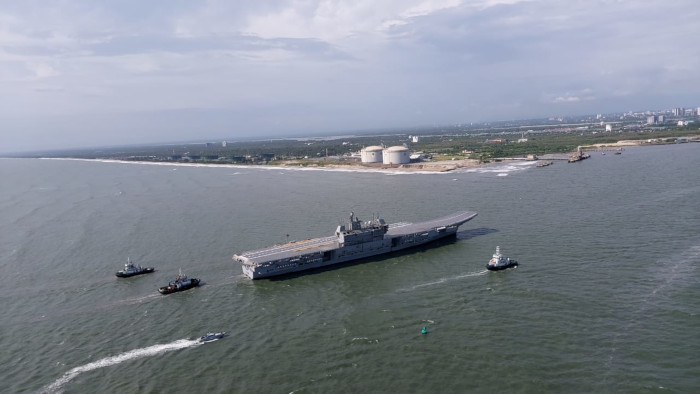
GSLV Mk III launch vehicle. ISRO Photo.
BANGALORE (PTI): The long-duration static test of liquid core stage (L110) for a new-generation heavy rocket being developed by Indian Space Research Organisation has failed, sources in the space agency said.
The test conducted at ISRO's Liquid Propulsion Systems Centre (LPSC) in Tamil Nadu's Mahendragiri on Saturday was originally targeted for 200 seconds but aborted at around 150 seconds following "some minor leakage in the command system", the sources told PTI.
Sources termed it as a "very minor problem" wherein there was a small leak in the command line that was detected by computer, which automatically stopped the test. "There is absolutely no problem in the engine".
India's PSLV and GSLV so far used one Vikas engine. But the heavy-rocket GSLV Mk III under development is meant to launch four tonne class of satellites in Geosynchronous Transfer Orbit (GTO) and needs much better thrust. And hence, two Vikas engines were being used for the first time.
ISRO last week successfully conducted the short-duration static test of the L110 stage, which uses two high-pressure Vikas engines in a clustered configuration and draws its heritage from the second stage of PSLV and GSLV and strap-ons of GSLV.
An ISRO release said the test was stopped at 150 seconds since a deviation in one of the parameters was observed.
"About 500 important parameters were monitored during the static test. The next static test for 200 seconds will be conducted after analysis of this data".
Measuring 17 metres in length and four metres in diameter, L110 is an earth storable liquid propellant stage with a propellant loading of 110 tonnes.
"While in PSLV and GSLV, the liquid stage with single engine configuration burns for 150 seconds, the GSLV-Mk III requires burning for 200 seconds in a twin engine configuration," ISRO said.
 Previous Article
Previous Article













The Indian Air Force, in its flight trials evaluation report submitted before the Defence Ministry l..
view articleAn insight into the Medium Multi-Role Combat Aircraft competition...
view articleSky enthusiasts can now spot the International Space Station (ISS) commanded by Indian-American astr..
view article